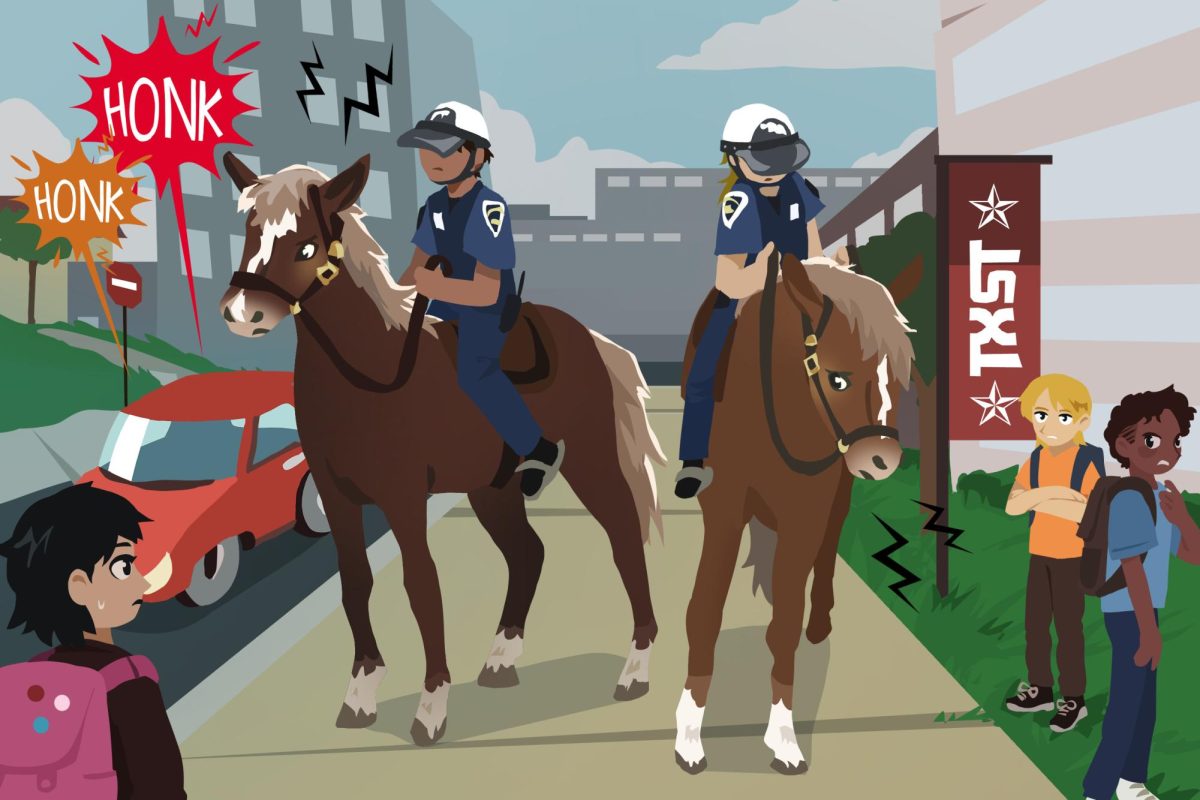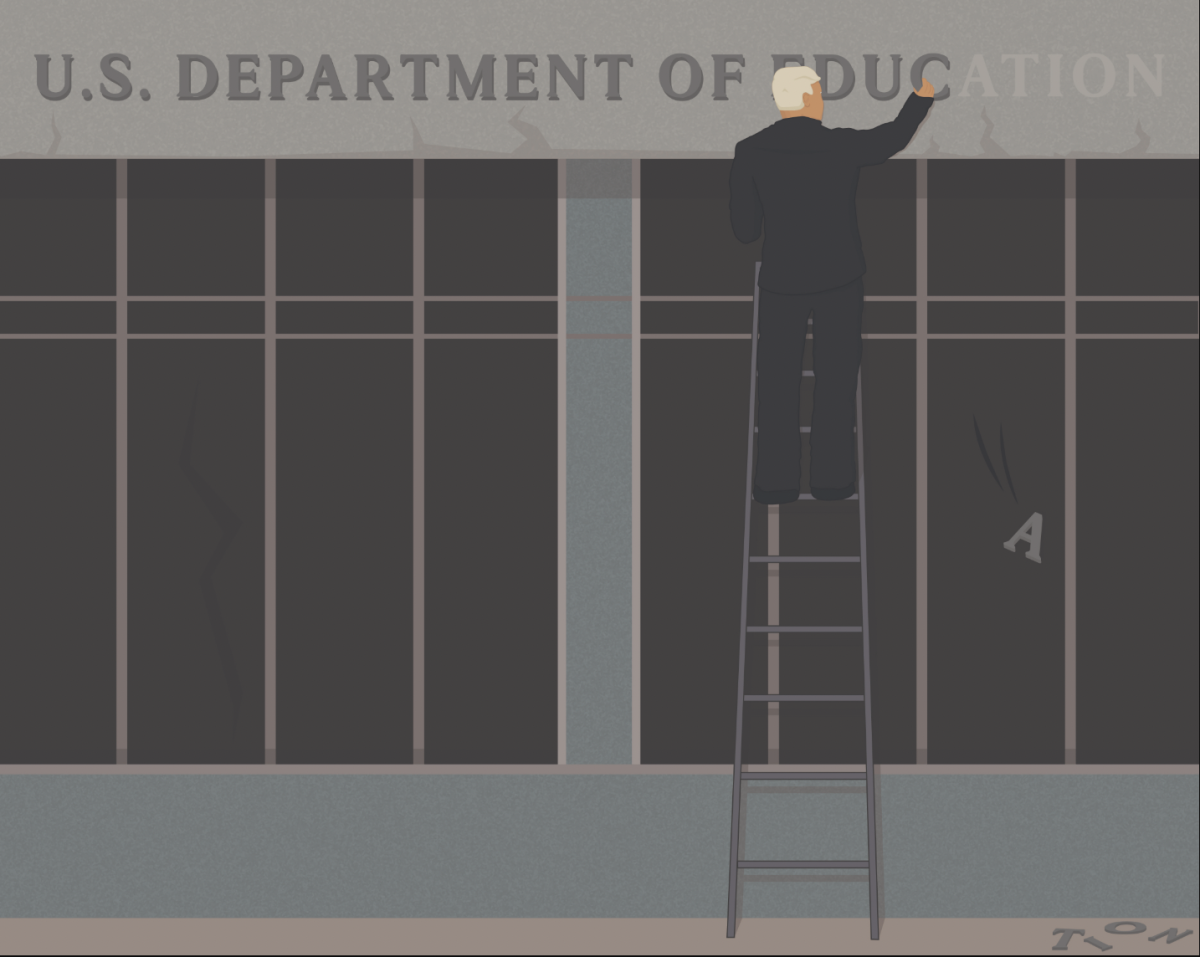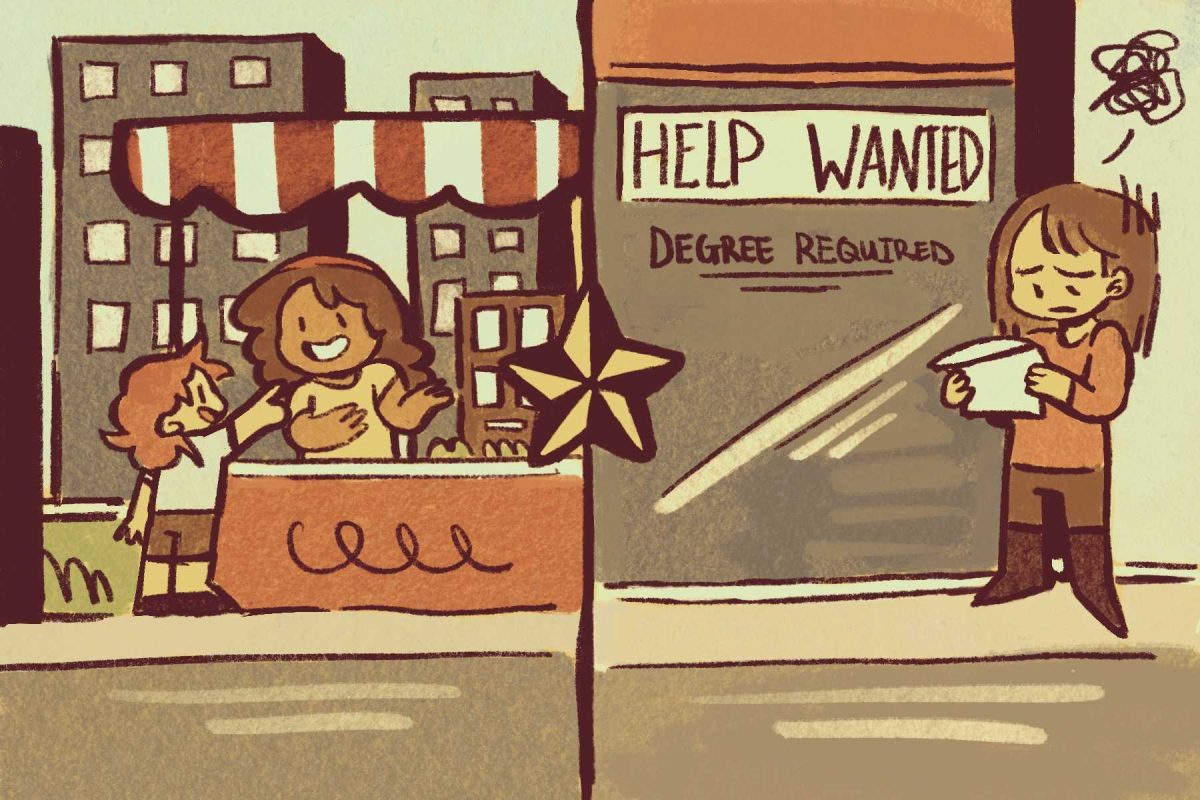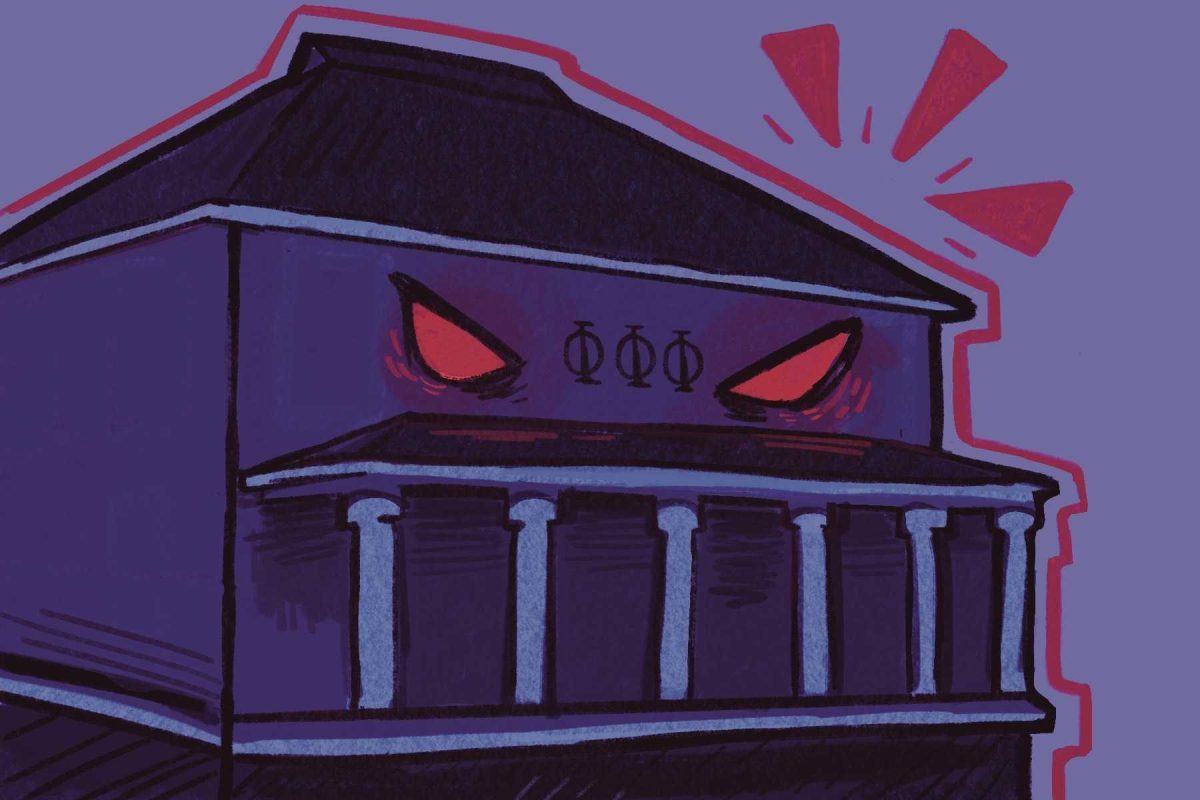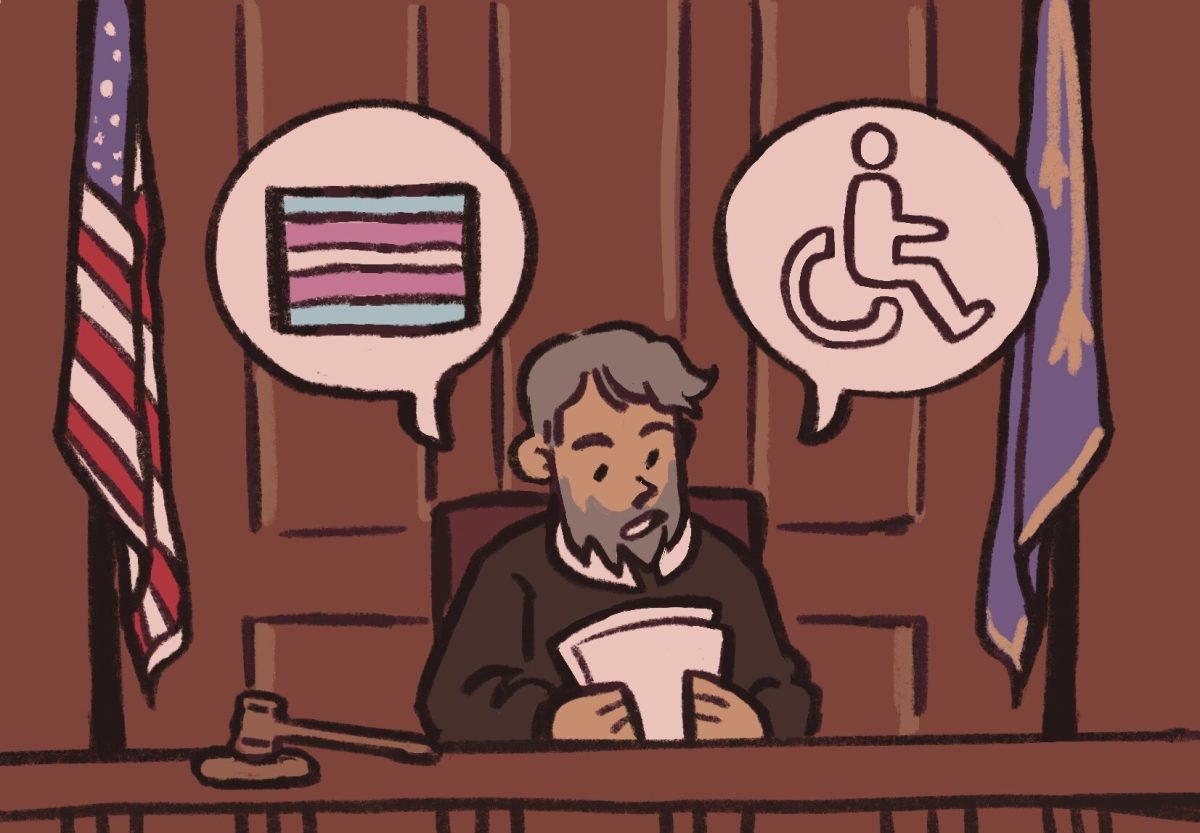In fall 2023, the University Police Department (UPD) announced the implementation of mounted horse patrols starting in spring 2024. The horses, Lyndon and Duke, were sworn in on April 23 at Freeman Ranch. However, it seems the university may not have considered the animal ethics or environmental impact of mounted horse patrols.
Animal welfare may not be the first concern that comes to many people’s minds, but it’s important to address, especially with the soaring Texas temperatures and steep hills Duke and Lyndon will face while carrying an officer on their backs.
“If a human doesn’t want to be walking around out in the summer heat, a horse doesn’t want to either. If the human doesn’t want to bike up a steep hill, a horse probably doesn’t want to either,” Deacon Newhouse, Texas State animal ethics professor, said.
Newhouse said he has experience growing up around horses due to his dad being a farrier. He said mounted horse patrols will not strengthen student-police relations as much as UPD thinks they will due to the unpredictability of horses.
“Having a 700-pound animal in close proximity to humans who might not be aware of how to interact properly with the horse presents some risk,” Dr. Newhouse said. “If [UPD is] concerned about student-police officer relations, something less intimidating than a horse, like a bicycle or a golf cart, might help ease those relations.”
While Duke and Lyndon have trained for months to behave around students and hectic situations, horses can still be unpredictable.
According to an article published by Oklahoma State University, horses have a natural response to flee from danger.
“Danger could be perceived as something that has invoked fear in the past or simply something new or different. If a horse panics, it may run over handlers, fences or other obstacles, which can cause injury to itself or others.”
The most important question surrounding animal welfare is whether Duke and Lyndon will be safe in the face of violent crime. Like their human counterparts, horses are as susceptible to traumatic experiences on the job, such as handling large crowds of protesters as seen worldwide at universities lately.
“[Horses] have had big rocks, bricks and water balloons filled with urine thrown at them and people screaming at them. The most tragic thing is the look in their eyes when you walk in their stalls. They are listless,” Sharon Classen, equine and human physical therapist, said in an article from Horse Sport.
Besides the concern for animal welfare, the horses could have an environmental impact due to the waste they create. Even though UPD plans to implement “student scoopers,” it won’t be an easy job.
According to an article published by Pennsylvania State, “one 1,000-pound horse produces about 31 pounds of feces and 2.4 gallons of urine daily.” The officers probably won’t have the time to stop and clean up Duke and Lyndon’s waste that student scoopers aren’t always around to clean, especially if they’re focused on performing their job.
The sight and smell of horse manure would affect Texas State’s beautiful campus and pose a threat to the San Marcos River and Edward’s Aquifer. Any pollutants on campus or Freeman Ranch would be collected by stormwater runoff, where it flows downhill into the river.
According to the Natural Resources Conservation Service, “Manure contains nutrients, such as phosphorus and nitrogen, and pathogens, including bacteria, viruses and parasites…these pollutants contaminate water resources and reduce recreational potential of lakes and rivers.”
Having horse waste run off into the San Marcos River from the campus that prides itself on the river and requires students to pay an environmental service fee would be counterintuitive.
There are many improved, more affordable options for UPD. It does not seem as though the positives of Duke and Lyndon outweigh the concerns of animal welfare, student safety and environmental impact. UPD must evaluate these factors before further utilizing Duke and Lyndon.
–Jayce Jackson is a journalism sophomore
The University Star welcomes Letters to the Editor from its readers. All submissions are reviewed and considered by the Editor in Chief and Opinions Editor for publication. Not all letters are guaranteed for publication.



